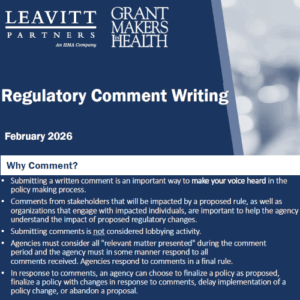Policy Resource: Regulatory Comment Writing
This resource provides an overview of how to write and submit a regulatory comment to the federal register.
The Residual Uninsured: Taking Stock, Taking Care
By the time the Affordable Care Act is fully implemented in 2019, government analysts estimate that about 89 percent of the nonelderly U.S. population will be covered by health insurance. An estimated 11 percent of the nonelderly population, more than 30 million people nationwide, will remain uninsured.
Living Sicker and Dying Younger: United States Lags in Global Health Gains
Shorter lives and poorer health: this was the striking conclusion of leading public health experts convened by the National Research Council and the Institute of Medicine when examining the research evidence on how health and life expectancy in the United States compares to that of other high-income democracies around the world.
Health Care for the Neediest: The Critical Transformation
The United States now stands on the cusp of important expansion in access to affordable health insurance coverage that was promised in the enactment of federal health reform legislation in 2010. As actors and stakeholders throughout the health system prepare for a surge in the insured population, leaders are looking ahead to the looming challenges that will move to center stage as the crisis of the uninsured recedes: How can we reduce the heavy burden of health care cost growth on our nation’s families, employers, state budgets, and federal health care programs?
Gun Control: A Health Policy Issue?
Although the health-related consequences of gun violence are undeniable, the need for stronger gun control policies to address these health outcomes is hotly contested. Is the field of health philanthropy particularly “gun shy” about engaging in the contentious policy debate surrounding gun control? A number of health funders have supported grants and initiatives related to violence prevention, but relatively few have explicitly recognized gun control as a health policy objective.
2013 Terrance Keenan Award Speech
The following remarks are from former Missouri Foundation for Health President and CEO James Kimmey’s acceptance speech upon receiving The Terrance Keenan Leadership Award in Health Philanthropy on March 14, 2013.
Big Ideas to Blueprints: Decisive Grantmaking in Dynamic Times
Download the GIH essay written for the 2013 annual meeting Big Ideas to Blueprints: Decisive Grantmaking in Dynamic Times. Foundation leaders were also invited to pen guest commentaries and share their thoughts around the annual meeting theme.
Join & Become a GIH Funding Partner Today!
Click here to learn more about becoming a GIH Funding Partner and joining the largest national network of health funders.

